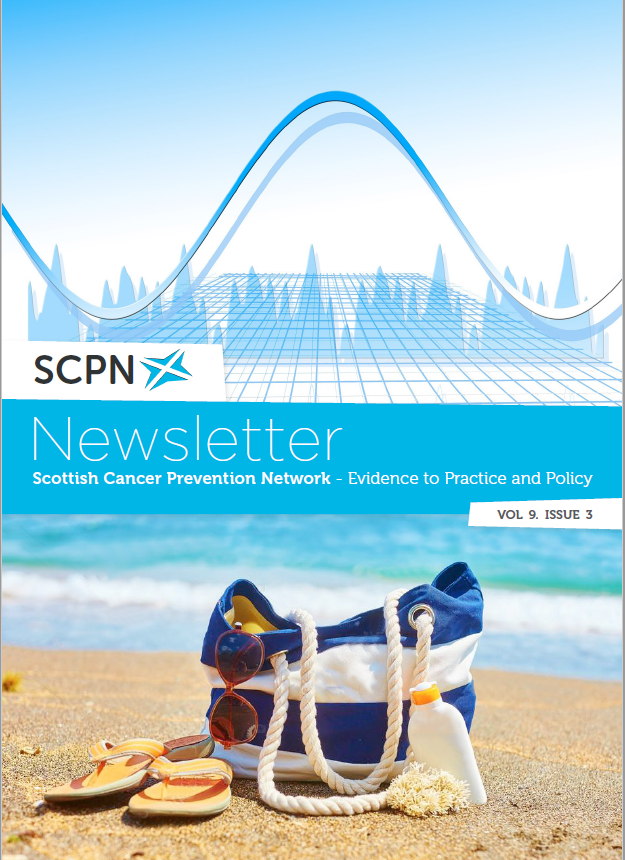
Expert Insight

10 Jul 18 |
We asked Professor Sarah Wild to provide an update on the association between diabetes and cancer. Sarah is an epidemiologist at the University of Edinburgh and an honorary consultant in public health at NHS Lothian. A large proportion of her research is based on
analysis of the excellent routine data available in Scotland.
Which cancers are more likely in people who have type 2 diabetes?
The strongest evidence for an association with type 2 diabetes is for breast, colorectal, endometrial and gallbladder cancers. The relationship between diabetes and cancer is complex and may work in both directions – for example cancer of the pancreas and of the liver may cause diabetes, in addition to the possibility that diabetes of long duration may increase risk of both these cancers. Interestingly, diabetes appears
to be associated with a lower risk of prostate cancer for reasons that are not yet clear.
What are the possible explanations for an association between diabetes and cancer?
Chronic non-communicable diseases all share common risk factors for which the most important for diabetes and cancer after increasing age are inadequate levels of physical activity and unhealthy lifestyle choices resulting in obesity. In people with both forms of diabetes, elevated levels of blood glucose provide fuel for cancer cells. High levels of insulin, resulting from treatment in people with type 1 diabetes and as a response to insulin resistance among many people with obesity and/or type 2 diabetes, are also thought to support tumour growth. In addition there is the possibility that other diabetes treatments such as metformin and other agents may influence risk of cancer although at present the evidence is not conclusive. Many previous studies of this topic have had serious design flaws that have given biased results. Some cancer treatments, for example steroids, increase the risk of diabetes.
Are there different patterns of cancer risk in people with type 1 and type 2 diabetes?
There is much less information about cancer risk in people with type 1 diabetes than in people with type 2 diabetes. However, the overall patterns of cancer risk look similar with increased risk of cancers that are known to be associated with obesity. A discordant finding is that women with type 1 diabetes appear to be at lower risk of breast cancer than women without diabetes, but this finding needs validation.
Do people with type 2 diabetes who lose weight reduce their cancer risk?
There are not enough studies with measurement of weight and sufficient follow-up to be able to provide a definite answer to this question. In observational studies there is the concern that unintentional weight loss may indicate the presence of undiagnosed cancer and it is usually not possible to identify intentional weight loss in routine data. Bariatric surgery results in lower risk of obesity-related cancers among women but it is not clear whether the effect is similar in women with and without diabetes.
Should people who are obese and diagnosed with a cancer also be checked for diabetes?
There is no evidence for the benefits of screening for diabetes in people who are obese and have been diagnosed with cancer. However, it is likely that investigations performed during the diagnosis and treatment of cancer will include a blood glucose level and may identify previously undiagnosed diabetes. This is an example of how ascertainment bias occurs, that is the identification of one condition makes it more likely that another disease will also be identified. This exaggerates the strength of the relationship between diabetes and cancer
Are risks of diabetes and cancer similar in men and women?
Both type 1 and type 2 diabetes are slightly more common in boys/men than girls/women. Overall men are at higher risk of cancer than women but there are a small number of cancers that are more common in women than men. Obviously some of the most common cancers
(prostate, breast, endometrial) only occur in one sex or the other! Relative risks of cancer associated with type 2 diabetes tend to be slightly higher in women than men.
Is the link between diabetes and cancer largely genetic?
Although some genetic variants influence risk of both diabetes and cancer environmental factors related to lifestyle make a much larger contribution to the association. Recent worldwide estimates suggests that 6% of all cancers, 25% of liver cancers, 38% of endometrial
cancers can be attributed to diabetes and obesity. It was also estimated that approximately 30% of cancers could be attributed to increases in the prevalence of diabetes and obesity between 1980 and 2002. These time trends are clearly related to environmental and not genetic factors.
